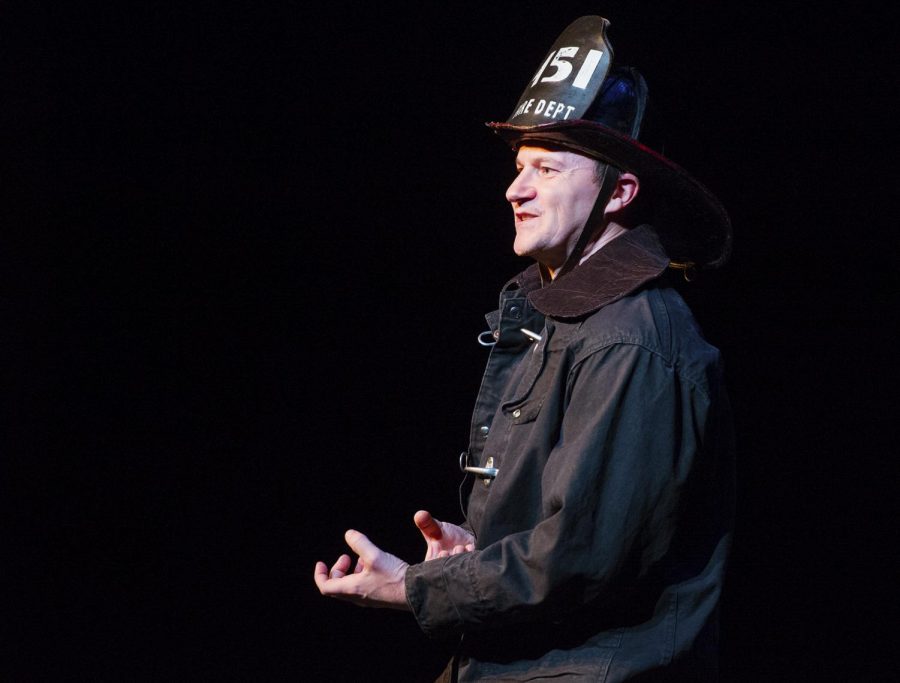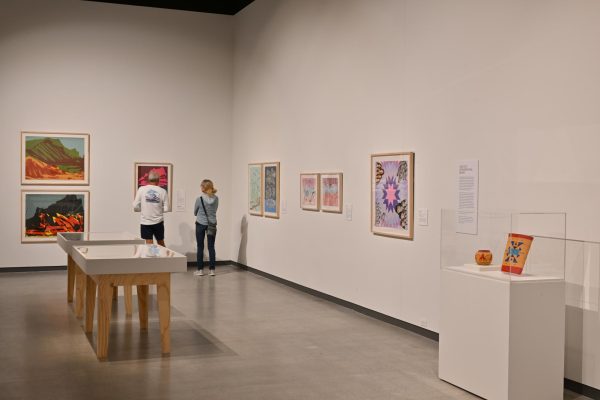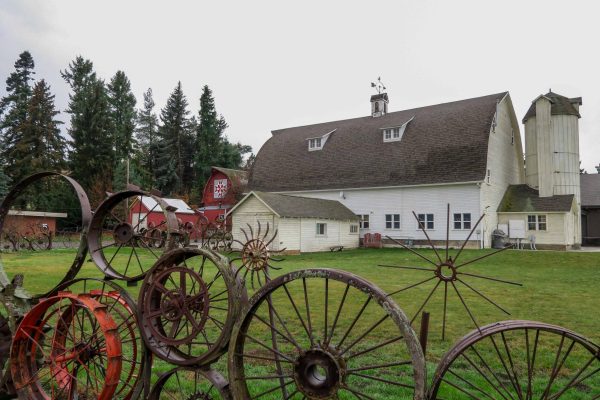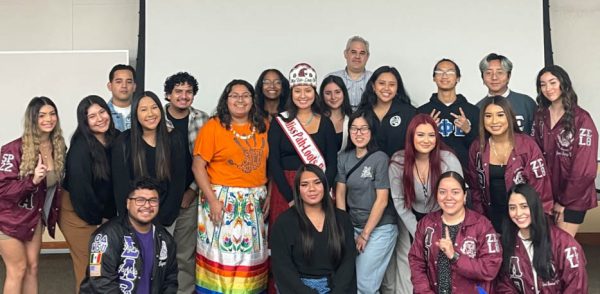One-man-show brings classic to life
Emmy-nominated actor performs as several characters for Literature to Life production
MICHAEL LINDER | The Daily Evergreen
Actor Rich Orlow plays Guy Montag in his one-man production of Fahrenheit 451 on Tuesday.
November 16, 2017
Admittedly, it’s been a couple of years since I read Ray Bradbury’s famous novel, “Fahrenheit 451,” but it goes a little something like this:
Guy Montag is a fireman in a dystopian U.S. But he doesn’t put out fires, he starts them to burn books that are believed to be destructive to the society and culture that has been built up in this future. It follows his story as he becomes disillusioned with the world around him and his job; a world where television reigns supreme and knowledge is demonized. Things come to a head when his collection of books is discovered, and he is forced to flee from a world he originally thought was a utopia.
This book is a favorite of mine, and has stuck with me because I read it as part of a class assignment in my sophomore year of high school. I was reasonably concerned with the idea of it being condensed down to a one-man show, with no more than an hour run-time. For those of you who have read this classic novel, you will know just how much Bradbury crams into that little book, and just how carefully he seeks to prove his point.
However, this was a Literature to Life play. It would be necessary to include the portions of the book that made it the classic that it was, the major events and moments that breathed life into the points that Bradbury wanted to prove and share with the world. It is in their goal to portray this novel as accurately as possible, so that even those just being introduced to the novel could understand it to a degree and participate in the discussion afterward. With that in mind, my worries eased a bit.
As Rich Orlow, the Emmy-nominated actor who runs this one-man show, rushed to the stage and ripped into the story’s beginning paragraphs with a speed and volume that was new to me, I found it rather enjoyable.
While parts of the novel were cut out — like that of the scenes involving Faber — the story was still told well. The main themes still existed, though modified a bit, and the primary messages of the story were still preserved. Furthermore, Orlow was wonderful, jumping from different characters as he conducted the story. He did particularly well with his characters, switching from Montag, to a higher, breathier Clarisse, to the deeper, brasher tones of Captain Beatty, or to the drab, couldn’t-give-a-shit tone of Mildred.
While it was a bit fast-paced, with the cuts removing many of the transitions as the story flowed on, Orlow’s use of voices and his own infused energy, smoothed out the pacing of the show so that the cuts would be hard to find unless you had read the book. But even then, they would still be hard-pressed to find all of them unless they had memorized the story.
Following Orlow’s performance, there was a short discussion of the novel, eventually including the actor himself. There was considerable discussion as to why the novel was still relevant 64 years after it was first published. Key among the discussion was the current mass media situation, and the rise of social media as an everyday part of our lives, and how technology can both improve life and ruin it.
While a variety of topics flew out, the audience was in agreement about one thing: Knowledge and academia are powerful tools, and, if allowed to flourish, can keep us from making the same mistakes our predecessors did.
Morgan Lester is a freshman architectural studies major from Leavenworth, Kansas. He can be contacted at [email protected].

















